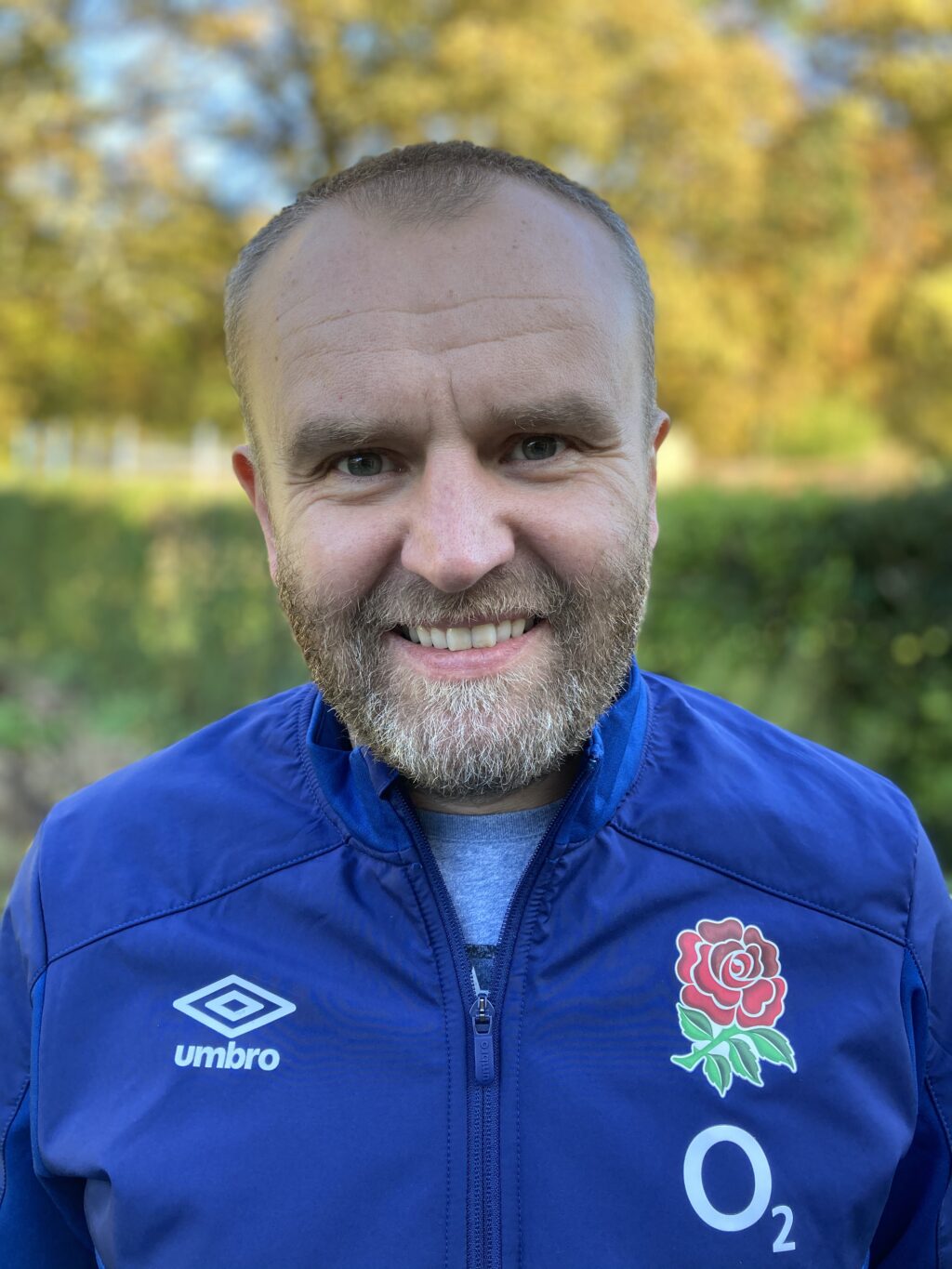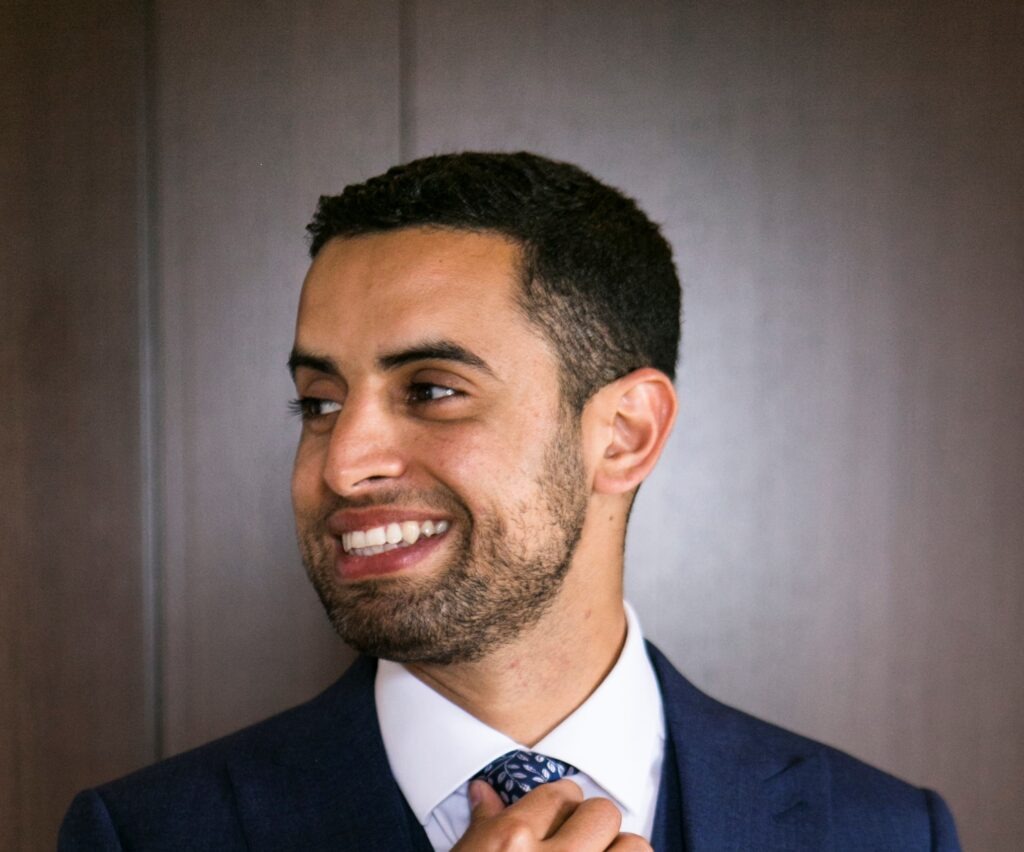Nour-Eddine Boufertala (Head of Procurement at the England and Wales Cricket Board), Ruaidhri Dunn (Head of Procurement at the Football Association) and Simon Oldcorn (Head of Procurement & Supply Chain at the Rugby Football Union) discuss the effects COVID-19 has had on sport with James Dobbin from Procurement Heads.


James: Could you tell us a bit about yourself and your career background?
Simon: As Head of Procurement and Supply Chain at the RFU my role encompasses procurement, supply chains for all of our kit and promotional goods and the design and print function under that too. I’ve been at the RFU for eight years and set up the procurement function when I joined, there was nothing previously and I’ve put in place all of the systems, processes and policies, which has been an interesting journey. Prior to that I spent a long time in various FMCG companies and a bit of time in consultancy but have basically done the whole end-to-end value chain of FMCG. It’s interesting for me as for the last few months I’ve had to rely on some of my old production planning processes and forecast planning and Far Eastern supply chains, which I thought I’d have left behind. Outside of work I’m still a rugby nut, I coach kids at the weekend and have two children, a boy and a girl and I’ve largely enjoyed working at home during the lockdown.
Ruaidhri: I joined the FA in 2017 as Head of Procurement to establish a function there, it had previously been outsourced. I’m responsible for three group entities we have, the Football Association Ltd, Wembley Nation Stadium Ltd and the National Football Centre at St George’s Park. Prior to the FA I worked at Deloitte, I also worked on London 2012 and with Simon for the Rugby World Cup of 2015 and then joined the FA from Sainsbury’s. Outside of work I have a three-year old son, I’m a great cricket fan so it’s great to hear from Nour as I’m a big fan of what they’ve done over the summer and I’m a Tottenham season ticket holder.
Nour: I’m the Head of Procurement at the ECB, I joined there in 2018 to set up the procurement function and am responsible for all of the types of procurement at the ECB and providing expert guidance across the cricket network to all of the first class counties across the country. Before the ECB I was working in the rail industry at Hitachi, and before that in the aerospace and military sector at Thales. What Simon said is interesting because this summer we were working on project management mode and forecasting, which was exactly what I did in my previous role, so my experience was a value-add. Outside of work I have a 15-month old daughter, so I am extremely busy and tired right now! I haven’t done much over the last year as I’ve been 100% focused on being a parent.
James: What are some of the biggest challenges your sport has faced as a result of the pandemic?
Ruaidhri: The biggest challenge was obviously that no football could be played for over a quarter of the year and all Non-League football has returned to that state of affairs. From a cashflow perspective our revenue comes from broadcasting, ticket, hospitality. Compared to our pre-COVID estimates we’re forecasting a £300m loss at the FA.
Simon: It’s very similar, it’s probably the biggest impact we all see. Our numbers in that space aren’t as big as the FA, but when you cascade it down to all of the amateur clubs of all sports across the country it’s a really challenging time.
Nour: For the ECB it was obviously the financial challenge, but also the creation of the bio-secure environment. It was the first ever bio-secure international game, so there was no blueprint to copy. We created new protocol from scratch, from security perimeters, medical testing, isolation areas for official media. It was an extraordinary operation, but we are immensely proud as we delivered a world class event at the end of the summer.
James: What role have you played in your organisation’s response to COVID?
Ruaidhri: We’ve been at the heart of trying to mitigate against that forecast £300m loss, there’s been a huge number of contractual negotiations, we’ve tried to focus on amicable settlement rather than purely a legal route. We work with a variety of fantastic third-party suppliers and we want them to be around on the other side of this, both sides have to bear a reasonable amount of the pain. We’ve been helping suppliers with furloughing, pushing back deliveries where events have been cancelled, Euro 2020 has gone back a year, as has Euro 2021, we’ve offered reduced payment terms, granting contract extensions in certain places. Although it’s been an incredibly challenging time for procurement, it’s probably raised the profile.
James: I guess it’s been a great intellectual challenge for someone who is looking to push themselves in their career.
Simon: I’ve got a bit of a guilty secret in that I’ve actually enjoyed that aspect of it. The intellectual challenge and novelty of the some of things we’ve had to procure has been fascinating from a problem-solving perspective.
Nour: I agree, it was difficult to adapt initially and came with huge challenges, but at the end we had to act so quickly.
James: How agile have you had to be?

Simon: Hugely so, a Print and Design Manager within my team project managed any sort of collateral from inception to production, you’re dealing with an announcement or guidance from the government on a Thursday that you can then cascade out to all clubs the next day. People have been working all sorts of hours and it has been a massive collective team effort to get things over the line.
Ruaidhri: I think that agility presents itself across several different areas of the business, from an elite level and with our international teams, with regards to education, which is a huge part of our business, changing from in person to e-learning, and with regards to Wembley, we very nearly had crowds in. The goalposts are moving really frequently and you have to have scenarios in place for multiple outcomes.
Simon: We were working with some of our big kit and equipment partners, before the impact was really felt in the UK, and we were trying to manage the shutdowns in China and southeast Asia back in January and moving production back and forward to dodge their local lockdowns and national holidays. It was really tricky on all sides, you’re working with unknown impacts on production schedules, but also with all the games being cancelled an unknown demand cycle and it was incredibly challenging.
James: Did you have plans in place or was it all fly by the seat of your pants?
Simon: It was a lot of flying by the seat of my pants if I’m honest, in 30 years of working I’ve never known anything like it. The usual stuff was useful, multiple suppliers, contingency plans, we did a big piece of work to identify supply chain risk, that really helped shape our lockdown and where we had to focus our activity. I don’t think anyone saw this coming really did they.
Nour: I agree with you, it was impossible to have a plan in place. I think the key for the ECB’s success was the relationship with the cricket network, the cricket family and suppliers – it helped a lot with the return of cricket in England and Wales. We didn’t have a plan in place but we’ve built a lot in the previous years, for example in 2019 it was an amazing year for the ECB and cricket with the World Cup, the relationships we built then helped a lot during the pandemic.
Ruaidhri: I think anyone that tells you they had a plan in place for something like this is probably lying! We run one or two business continuity plans each year so we rehearse this type of stuff, but we hadn’t done anything as specific as a global pandemic and all of the knock on stuff but that did give us lots of bits that were applicable, for instance, not being able to have fans at Wembley, what would happen if contagious illness hit one of our technical teams at a major tournament, we’d worked on what would happen if we couldn’t access our offices due to terrorism – none of those in themselves are the whole picture or exactly map across, but you can take parts of that and try and role it out. Obviously, this was on totally a different scale!
James: Is there anything you would have done differently with the benefit of hindsight?
Nour: At this stage it is too early to reflect. Something I have realised is the diversification of the supply base to ensure supply continuity is really important. We have to get ready and make sure we have a broader supply chain.

Ruaidhri: I think we were pretty pleased, there was very little we could have been expected to do differently. Hindsight is obviously a wonderful thing but if there’s a sure-fire way of looking like a fool in 2020 it’s trying to look further than the end of your nose. We moved pretty quickly on the financial and operational plan and how our teams and grassroots football could continue. There are always some minor things, around say comms, but overall I think our communications held up well.
Simon: I’d echo what both Nour and Ruaidhri said. On a personal level, if it happened again, I would try and get a routine in place earlier rather than fly by the seat of my pants and crisis manage, because it wasn’t until a couple of months in that I recognised the value of that. Because everyone was in the same boat, the working day stretched to almost 24 hours and answering emails at all sorts of times, it was a challenging time and I think people’s mental health was impacted as a result.
James: Has there been much collaboration between the respective sporting bodies?
Simon: We talked all the time before anyway, we have a reasonably regular catch up on problem-solving, we don’t share commercial terms but we talk about what each other is working on and challenges and that continues. For me, hats off to cricket and the bio-secure they led on, there was a lot of collaboration between the Chief Medical Officers within the different sports so all of that learning was shared and we didn’t have to reinvent the wheel. I thought that collaboration was really impressive. Also, for me, I haven’t really dealt with Premiership Rugby before but I found myself helping support them aggregating up PPE so all the 12 clubs weren’t going out individually and disrupting in that market, we also worked collaboratively on testing to get elite sport back up because we wanted a consistent approach across the leagues and national bodies. I thoroughly enjoyed that, it was a huge piece of work but very agile, because the medics and scientists were learning about the virus as we were trying to procure against it. It was genuinely fascinating.
Ruaidhri: At the beginning I think there were some discussions around whether combined buying might be beneficial, but I think in terms of getting agreements it probably counted against that. There’s always been good communication across the governing bodies, I think procurement in sport, whether that’s national, teams or leagues is something that is definitely on the rise.
Nour: Procurement in sport is a very small family, most of the time we’re using the same suppliers or providers, so we’re sharing information and helping each other where we can. It’s great that we had built these relationships before the pandemic. In terms of collaboration, this is not just at procurement level, it’s at all levels and I know our respective CEOs had a lot of discussions at the start of the pandemic on how we can work together – and in the end we had a lot of positive outcomes, especially on the medical side.
James: How much impact did the cancellation of trialling fans returning to stadiums have on your respective sport and its respective procurement team?

Ruaidhri: Financially that has been a huge blow. At the less elite level, where they don’t have large broadcast deals, they really need fans in the stadia. We were really keen to lead on trialling and the inability to do this has impacted hugely.
Nour: I think the financial impact has been hugely important. We have lost 800 days of spectators being able to be in stadia, so it was a shame, especially after the income from 2019’s World Cup, which we wanted to build upon. We were fortunate enough to have BBC and Sky, it was great to see the first live cricket on BBC in 25 years – it was great timing and gave people the chance to see cricket.
Simon: It’s been a brutal impact, time will tell how bad it will be and whether all clubs across sports will survive or not. To me, I think broadly what I’ve seen the government respond to it in such a difficult situation has been good, this is one I don’t understand on a personal level, it frustrates me. I could take my kids to the cinema but not to a football ground in the open air, all the clubs across all the sports have lots of protocols to maintain social distance etc. From the procurement side, we were all ready to put up the one-directional signing in the stadium, when it finally got pulled we knew what we had to do to keep people safe. I think the impact could’ve been mitigated more than we’re seeing.
James: It must be quite frustrating to see people being able to go to the pub but not able to socially distance in a massive stadium.
Simon: It’s illogical, let’s be honest. Last weekend, and I don’t want to dismiss any other industry, I went to an indoor trampoline park – it wasn’t as full as normal – but no one bouncing had masks on, 20 to 30 children were playing dodge ball with no sanitation of the ball, it makes no sense. I don’t want to be critical, I think they’ve had a very difficult hand to play and I think they broadly done well, but this is one I don’t get.
Ruaidhri: The UEFA guidance across all national associations in Europe is subject to local restrictions you are allowed 30% attendance back, now obviously we don’t have the authority to do that but we are ready when that green light is given. There has been a huge amount of work done by the teams at the stadiums to get to that point. It doesn’t seem like it’s going to be any time soon unfortunately but hopefully heading into the new year that will change.
James: Do you see ticket prices going up quite dramatically given the lower volume of people attending?
Ruaidhri: I would doubt that, but it’s not really my area.
Simon: Likewise, I doubt it – it’s not my area to know about. Certainly at the elite level it can be slightly tempered that you can prioritise the hospitality or higher paying guests and come in with under your 30% but all that does is maximise the revenue, it doesn’t fix the problem and not all stadiums can do that.
James: I’ve really enjoyed listening to all the different takes.
Ruaidhri: Hopefully we can all meet up in the new year to discuss it more at Wembley or Lords or Twickenham.
Simon: On another positive note, the collaboration across the different sports and bodies and how people have come together and worked together. Look at how the ECB got those tests on, they were fantastic games, done so seamlessly, and that learning was cascaded and that’s a bright light in a very dim year.
Ruaidhri: Some people try and make the argument that sport’s very trivial in the grand scheme of things, I appreciate it’s not a life and death matter, but I don’t think it is trivial. After that initial lockdown, when football and cricket returned to our screens, I think that did prove a huge boost and the continuation of elite sport during the second lockdown will continue to do so. Sport has a big part to play in the mental health side of the conversation.





